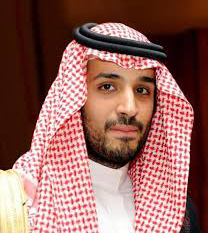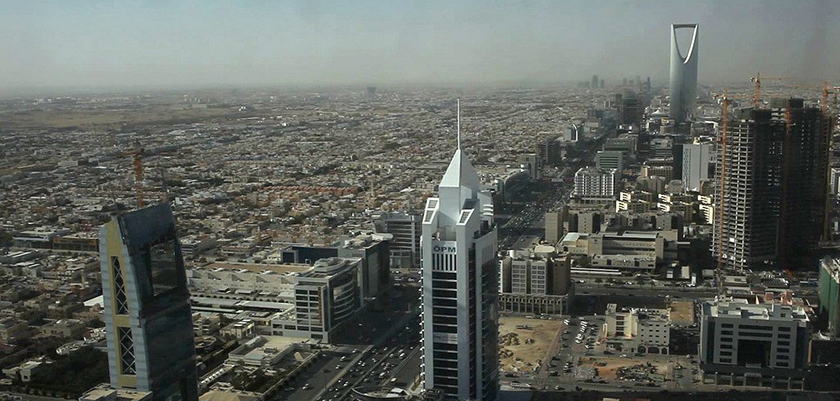The economic trials currently facing Saudi Arabia – a fall in oil prices resulting in budget deficits, wars in Syria and Yemen, and social stresses stemming from increases in gas and other utility prices – in reality present opportunities as much as challenges. This is particularly the case because the government led by King Salman and his son, Deputy Crown Prince Mohammed Bin Salman, has demonstrated a clear understanding of these realities and shows promise in confronting them effectively.
The Saudi Arabian government is essentially looking to restructure its economic system and renegotiate its social contract. Prince Mohammed has let it be known that announcements regarding these changes will begin April 25, with specifics to follow over the following months. More details are thus forthcoming, but so far we know that the new vision involves opening up national wealth to more foreign investment as well as further liberalization, deregulation, and privatization. These changes not only promise greater economic stability to the Kingdom – a key regional and global energy, commercial, and security partner to the United States – but also present an opportunity for American companies to invest reliable long-term capital in a wide range of sectors and regions. The Kingdom seeks to maximize returns from these investments in the way that well-managed businesses do.
A New Economic and Social Vision
Saudi Arabian leaders, embracing advice from within and consulting the world’s sharpest financial minds on how best to nurture sovereign wealth, are concentrating assets in the country’s Public Investment Fund. They have been meeting with private equity and other investment firms across the globe and in the United States, seeking partners to maximize return on $2 trillion in national wealth. These assets are currently balanced 95/5 in favor of domestic vs. offshore investments, but plans call to equalize the balance, implying huge inbound and outbound opportunities for American firms.

At the same time, the Kingdom is privatizing and deregulating its economy. This, like the shifts in investment regulation, is driven by the uncertainty of future oil revenues in an economy primarily dependent on the energy sector, as well as by the unsustainability of high public sector employment. Even Saudi Aramco may partially privatize. The Kingdom seeks globally competitive firms to invest in and energize state-owned domestic assets, including airlines, airports, seaports, petrochemical plants, and utilities of all types. A health care reform committee is considering redefining the Ministry of Health’s role to one of regulation only, while hospitals would be privatized to improve care and reduce expense.
In a series of interviews with Western media, Prince Mohammed has in effect signaled a renegotiation of his country’s social contract that aims to empower citizens economically, socially, and otherwise. While oil will continue to be key to the Kingdom’s prosperity, a country of 20 million citizens (half of them under the age of 25) is lining up for economic and social changes built around privatization, deregulation, diversification, and the transfer of primacy from the public to the private sector as the engine of opportunity and growth.
Prince Mohammed has in effect signaled a renegotiation of his country’s social contract that aims to empower citizens economically, socially, and otherwise.
Young Saudis, many of whom are U.S. college graduates, are eager for new opportunities in such an economy. Saudi Arabian women will play an important role in this new system; female lawyers, for example, are already claiming a growing role in the legal profession and appear freely before many courts.
U.S. Opportunities
If even a portion of the government’s economic vision is fulfilled, American companies will have a wide range of compelling investment opportunities in many areas in which the U.S. economy dominates, such as health care, education, high tech, information technology, management consulting, and business services. Sitting at the center of the six-country Gulf Cooperation Council, Saudi Arabia is a natural choice for investments in manufacturing, retail, transportation, distribution and logistics, and regional services. The Kingdom will likely experience significant growth toward an information economy, including a well-trained workforce and meaningful improvements in the investment climate, attracting even more foreign investment.
In ways reminiscent of the Oklahoma land rush, European and other companies are eagerly awaiting the coming opportunities, though Saudi Arabia has always leaned toward American companies, products, and business people.
If even a portion of the government’s economic vision is fulfilled, American companies will have a wide range of compelling investment opportunities in many areas in which the U.S. economy dominates, such as health care, education, high tech, information technology, management consulting, and business services.
This is in part due to the long, harmonious, and mutually beneficial relationship between Saudi Aramco and the United States. It is an auspicious moment suggesting unique opportunities for American companies.
In his 2004 article “America’s Sticky Power,” Walter Russell Mead described three types of power: sharp, sweet, and sticky. In terms of the United States and Saudi Arabia, sharp is the close and dependable defense relationship illustrated in Desert Storm and still expressed in cooperation in countering ISIS. Sweet is Saudi youths’ taste for American culture, including music and film via YouTube and social media – to which Saudi youth have taken with gusto. Sticky is economic and commercial power that stands to benefit from Saudi Arabia’s prospective pivot from public to private sector primacy. The benefits will help strengthen the two countries’ traditional energy, economic, defense, and geopolitical partnership.
In King Salman’s meeting with President Obama last September, both leaders expressed a desire for a new and enhanced strategic partnership. American business has a vital role to play in bringing this vision to reality, with the promise of enormous benefits for all concerned.


2 thoughts on “Economic Reform in Saudi Arabia: Opportunities for the Kingdom & America”
Comments are closed.